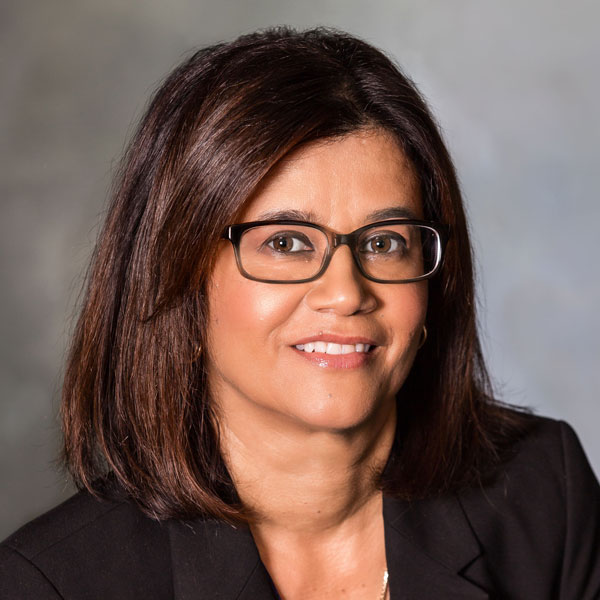Gladys Cruz: Helping Teachers and Students Thrive
Gladys Cruz: Helping Teachers and Students Thrive

Gladys Cruz
As a little girl, Gladys Cruz loved playing school with her friends. She particularly enjoyed being the teacher. From that young age, she knew that’s what she wanted to be.
Cruz was raised in both Puerto Rico and Albany, NY. Toggling between two cultures and going to school in both was challenging. “Shifting from Spanish in Puerto Rico and English in Albany was hard, as was navigating the educational system as a young person,” she says.
Of her seven siblings, Cruz was the first to graduate high school and go to college, ultimately earning a PhD in education. Her affinity for languages and learning earned her top scores and paved the way for a 30-year career in teaching and educational administration.
“I had some great teachers who made a difference in my life and really inspired me,” says Cruz, the first Latina district superintendent for Questar III, an Albany-area BOCES. “My 4th grade teacher really pushed me, believed in me, and underscored that I could be whatever I wanted to be. From her, I learned that my future was all up to me.”
Making a difference
Cruz has always enjoyed teaching and being in the classroom, but wanted to make a difference in a larger way. As an educator and leader, she certainly has.
Today, Cruz is responsible for Questar’s day-to-day operations. She provides direction to 23 local school districts and oversees the delivery of nearly 300 programs and services across New York State. When the New York State Commissioner of Education has an issue in one of the districts in Questar III BOCES, Cruz resolves it. At this larger regional level, she says, she can help drive systemic changes that can affect more than 30,000 students.
It’s a big job.
Coaching works
Cruz credits the coaching she gets from Warner School’s Center for Professional Development and Education Reform for helping her and her staff maximize their effectiveness as leaders and role models. She participates in coaching sessions twice a month and nearly 15 people on her administrative team have a Warner coach, too. It’s a collaboration between her district and Warner, and it works.
“Athletes have coaches and so should educators—everyone benefits from the experience,” says Cruz. “For me and my teams, coaching has been invaluable.”
She notes that candid, confidential conversations with her coach, Mike Ford, the Center’s director of leadership development, help her grow, inform her perspectives, and prompt her to really think through—objectively and practically—how to handle certain situations, especially potentially difficult ones.
Ford underscores the benefits of coaching. “We help leaders be more effective so that teachers and students can thrive,” he says. “Leaders like Gladys have one simple goal for coaching: to be better tomorrow than they are today. Knowing that makes being a coach incredibly rewarding.”
Cruz adds that she and Ford will often role play to work through how to have a difficult conversation with someone, be it a supervisor, a Board member, a staff member, or someone else. To have these conversations in a non-evaluative way is always beneficial.
Striving for more
When Cruz thinks about her job, her standard and expectation is this: if she had a child, would the program be good enough for him or her? It has to be. This fuels her wish to drive effective programming and motivate administrators and educators to do more.
Cruz credits her coaching she gets from Warner’s Center, an amazing team, and a great Board with her district’s success, which is continually seen in the students who are excelling and becoming—just like her 4th grade teacher said—anything they want to be.
For more information
Preston Faulkner
Senior Director, Warner Advancement
(585) 276-3636 | pfaulkner@warner.rochester.edu
Learn more about Warner’s Center for Professional Development and Education Reform.
—Kristine Thompson, June 2019